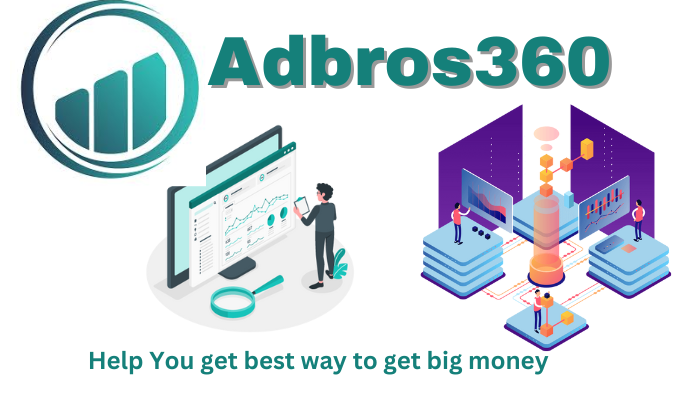Starting an online business in the USA offers an exciting opportunity to tap into a vast market with a diverse customer base. Whether you aim to sell products, offer services, or create digital content, the online landscape provides numerous avenues to achieve success. This comprehensive guide will walk you through the essential steps and considerations to help you start and grow a thriving online business in the USA.
Identifying Your Niche and Business Model
Selecting a niche is crucial for establishing a successful online business. Research current market trends, identify gaps, and pinpoint your target audience’s needs. Consider whether you want to sell physical products, digital goods, services, or a combination. Evaluate the competition to understand what works and what doesn’t within your chosen niche.
Once you have identified your niche, choose a suitable business model. Common models include e-commerce stores, subscription services, affiliate marketing, and dropshipping. Each model has its own set of challenges and benefits, so it’s essential to select one that aligns with your skills, resources, and long-term goals.
Creating a Business Plan
A detailed business plan acts as a roadmap for your online business. Outline your business goals, target market, competitive analysis, marketing strategies, and financial projections. This plan will help you stay organized and focused, guiding your decisions as you grow your business.
Make sure your business plan covers the following key components:
- Executive Summary: Provide a brief overview of your business, including your mission statement and what you aim to achieve.
- Market Analysis: Conduct thorough research on your industry, market size, and potential growth. Identify your target audience and their buying behaviors.
- Marketing Strategy: Define how you will attract and retain customers. This may include SEO, social media marketing, content marketing, email campaigns, and paid advertising.
- Financial Plan: Outline your funding requirements, revenue projections, and budget allocation. Include a break-even analysis and profit forecasts.
Registering Your Business
Legal formalities are a crucial aspect of starting an online business. Choose a suitable business structure, such as a sole proprietorship, partnership, LLC, or corporation. Each structure has different legal and tax implications, so it’s wise to consult with a legal advisor or accountant.
Once you have chosen your structure, register your business with the appropriate state authorities. Obtain an Employer Identification Number (EIN) from the IRS, which is necessary for tax purposes and opening a business bank account.
Building Your Online Presence
A professional online presence is essential for credibility and customer engagement. Start by selecting a domain name that reflects your brand and is easy to remember. Purchase your domain and choose a reliable hosting provider.
Next, design a user-friendly website that showcases your products or services. Utilize an e-commerce platform like Shopify, WooCommerce, or BigCommerce if you plan to sell products online. Ensure your website is mobile-responsive, as a significant portion of traffic comes from mobile devices.
Implementing E-commerce Solutions
For product-based businesses, setting up an efficient e-commerce system is critical. Integrate a secure payment gateway to facilitate transactions. Offer multiple payment options, such as credit cards, PayPal, and other digital wallets, to cater to diverse customer preferences.
Streamline your inventory management to keep track of stock levels and avoid overstocking or stockouts. Utilize tools that sync with your e-commerce platform to automate this process.
Marketing Your Online Business
Effective marketing strategies are vital for driving traffic and converting visitors into customers. Focus on a mix of organic and paid marketing techniques to maximize your reach.
- Search Engine Optimization (SEO): Optimize your website’s content and structure to rank higher in search engine results. Conduct keyword research to identify relevant terms your target audience is searching for.
- Content Marketing: Create valuable and engaging content, such as blog posts, videos, and infographics, to attract and retain customers. Content marketing helps build trust and establishes your authority in the industry.
- Social Media Marketing: Leverage social media platforms to connect with your audience. Share updates, promotions, and engaging content to foster a community around your brand.
- Email Marketing: Build an email list and send regular newsletters to keep your audience informed about new products, promotions, and company news. Personalized email campaigns can significantly boost conversion rates.
- Paid Advertising: Invest in pay-per-click (PPC) advertising, social media ads, and influencer partnerships to reach a broader audience. Monitor the performance of your ads to ensure a good return on investment (ROI).
Managing Customer Service
Exceptional customer service can set your business apart from competitors. Implement a system to handle customer inquiries, complaints, and feedback promptly. Utilize customer relationship management (CRM) software to manage interactions and improve customer satisfaction.
Offer multiple channels for customer support, including email, live chat, and social media. Providing a seamless and responsive customer service experience can lead to repeat business and positive reviews.
Analyzing and Optimizing Performance
Regularly analyze your business performance to identify areas for improvement. Use web analytics tools like Google Analytics to track website traffic, user behavior, and conversion rates. Evaluate your marketing campaigns’ effectiveness and adjust your strategies accordingly.
Gather customer feedback to understand their needs and preferences. This information can help you make informed decisions about product development, website improvements, and marketing tactics.
Scaling Your Business
As your business grows, consider expanding your product line, entering new markets, or exploring additional sales channels. Invest in automation tools to streamline operations and improve efficiency.
Collaborate with other businesses or influencers to reach a broader audience. Form strategic partnerships to leverage each other’s strengths and resources.
Legal Considerations and Compliance
Ensure your online business complies with all relevant laws and regulations. This includes data privacy laws, such as the General Data Protection Regulation (GDPR) for businesses dealing with European customers, and the California Consumer Privacy Act (CCPA).
Protect your intellectual property by registering trademarks and copyrights. Draft clear terms and conditions, privacy policies, and return policies to protect your business and inform your customers.
Frequently Asked Questions (FAQs)
Q1: What are the best e-commerce platforms for starting an online business? Several e-commerce platforms cater to different needs. Shopify is user-friendly and ideal for beginners, while WooCommerce offers flexibility for WordPress users. BigCommerce is suitable for larger businesses seeking scalability.
Q2: How much does it cost to start an online business in the USA? The cost varies depending on the business model and scale. Initial expenses may include domain registration, website hosting, marketing, and inventory. On average, you might expect to spend a few hundred to several thousand dollars to get started.
Q3: What are the legal requirements for starting an online business in the USA? You need to choose a business structure, register with state authorities, and obtain an EIN from the IRS. Additional licenses and permits may be required depending on your industry and location.
Q4: How can I drive traffic to my online store? Implement a mix of SEO, content marketing, social media marketing, email marketing, and paid advertising. Engaging content and strategic partnerships can also help increase traffic.
Q5: What payment methods should I offer? Offer a variety of payment methods, including credit/debit cards, PayPal, and digital wallets like Apple Pay and Google Wallet. Providing multiple options increases the likelihood of conversion.
Q6: How do I handle shipping and fulfillment? Consider partnering with fulfillment services or third-party logistics providers to manage shipping. Offer multiple shipping options and clearly communicate delivery times to customers.
Q7: What is the importance of customer reviews? Customer reviews build trust and credibility. Encourage satisfied customers to leave reviews and promptly address any negative feedback to maintain a positive reputation.
Q8: Can I run an online business part-time? Yes, many entrepreneurs start their online businesses part-time while maintaining other jobs. However, as the business grows, it may require more time and dedication.
Starting an online business in the USA involves careful planning, strategic marketing, and ongoing optimization. By following these steps and staying informed about industry trends, you can create a successful online business that meets your goals and serves your customers effectively.



